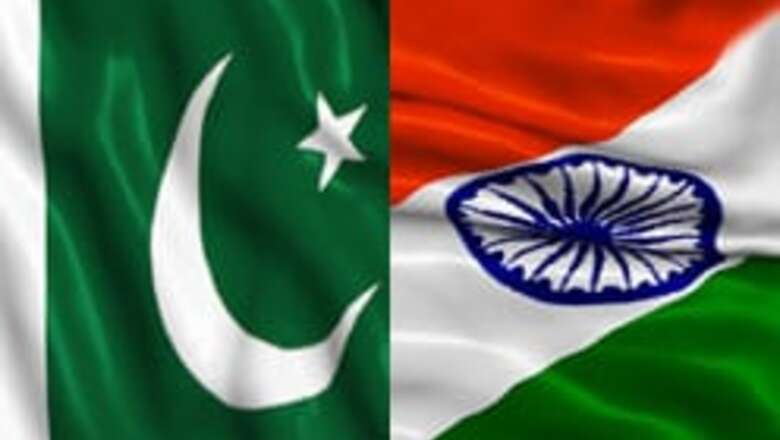
views
Vienna: India and Pakistan may both be on the verge of expanding atomic fuel production work that could heighten a nuclear arms race between the historical foes, a prominent non-proliferation think tank said.
Fresh satellite imagery indicates Pakistan may intend to activate a new reprocessing plant "capable of separating weapons-grade plutonium out of spent reactor fuel" at its Chashma nuclear industrial park, the Institute for Science and International Security said in one of two matching studies.
India, meanwhile, appeared close to adding at least 3,000 centrifuges, machines that enrich uranium into fuel for power plants or bombs, to roughly 2,000-3,000 existing centrifuges at its Rare Materials Project (RMP) enrichment plant, ISIS said.
"This would significantly expand India's ability to make HEU (highly enriched uranium) for its military nuclear programmes and enable it to add thermonuclear weapons to its arsenal at a rate of at least a few per year," it said in the emailed report.
There was no immediate comment from Indian and Pakistani officials. US President George W Bush last month signed legislation in a big step towards allowing Washington to sell civilian nuclear technology to India to improve strategic and business ties between the world's two largest democracies. Critics say the deal undermines the three-decade-old nuclear Non-Proliferation Treaty because India has never joined it and developed atomic bombs in secret.
The NPT holds that only states that renounce nuclear arms qualify for civilian nuclear aid. Pakistan, India's nuclear rival and also outside the NPT, sought a similar deal with Washington but was refused.
As a result Islamabad has mulled expanding nuclear ties with China. "Noting India's recently intensified efforts to increase uranium enrichment capabilities at the RMP, the prospect of Pakistan dramatically increasing its own plutonium separation capability would raise the question of whether the two countries are already engaged in an expanded arms race...," ISIS said.
Alluding to criticism of the Indo-US accord and the 45-nation Nuclear Suppliers Group, which controls atomic material exports to prevent proliferation of nuclear weapons in unstable regions, ISIS added: "If the NSG (now) makes an exception for India, foreign suppliers of dual-use items will need to exercise extra care to ensure that the RMP is not the ultimate end user or beneficiary of exports intended solely for peaceful non-military purposes."
India says 14 of its 22 nuclear facilities are civilian. Opponents of the Indo-US deal say it would make bomb-making at the other eight easier since civilian atomic fuel needs would be met by the United States. Indian-Pakistani relations improved last year after a series of direct talks including a summit meeting in September.














Comments
0 comment